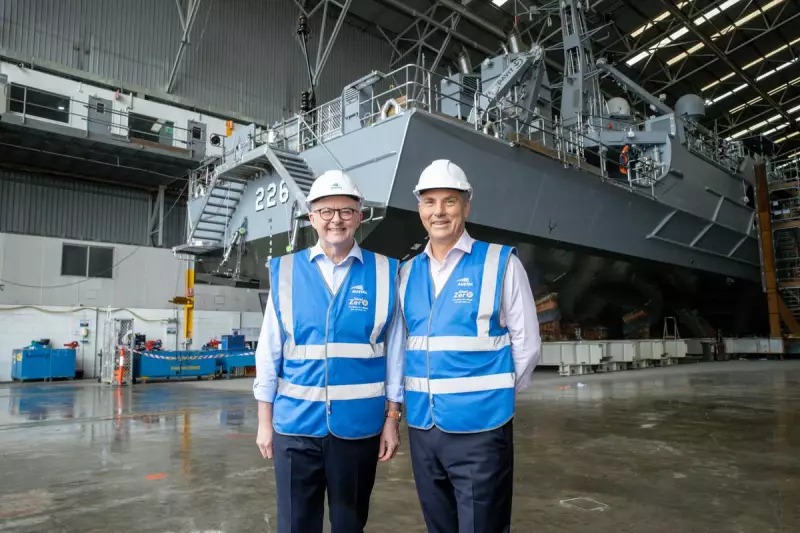
Austal's chief executive has publicly acknowledged Japan's unease about a South Korean defence giant's push for a significant stake in the Australian shipbuilder, a move that could impact a multi-billion dollar frigate program at the Henderson shipyard.
Japanese Concerns Over Technology Security
Paddy Gregg, the CEO of Austal, stated on Monday that he understands why Japanese contractor Mitsubishi Heavy Industries feels "nervous" about Hanwha's proposal to increase its stake in Austal to 19.9 per cent. The revelation comes as The Sunday Times reported that Japan's Defence Ministry has written at least twice to its Australian counterpart in Canberra, expressing its discomfort with the potential investment.
This diplomatic correspondence has unfolded against a backdrop of delayed decision-making from Federal Treasurer Jim Chalmers. His verdict on Hanwha's application, initially expected in early September, has been postponed, fuelling tensions and suggesting the government is wrestling with a contentious geopolitical and economic decision.
Austal's Assurance on Intellectual Property
Despite the apparent Japanese anxiety, Mr Gregg was adamant that Austal's security protocols are robust. "As another sophisticated prime (contractor), we have systems to protect information, and we would be very confident... that there would be no risk to their IP," he asserted. He further clarified that owning a 20 per cent share in a company does not automatically grant access to sensitive technical data or internal systems.
The context for these concerns is the Federal Government's impending $10 billion deal with Mitsubishi Heavy Industries. The Japanese conglomerate has been selected to supply its upgraded Mogami-class frigate to the Royal Australian Navy. Under the current plan, the initial warships would be constructed overseas before production shifts to the Henderson shipyard in Western Australia, where Austal is slated to play a major role in building the remainder of the fleet.
Broader Implications for Australia's Naval Ambitions
The situation places the Australian Government in a delicate position. On one hand, it is keen to encourage investment from key regional allies like South Korea. On the other, it must protect the integrity of its strategic partnerships and its vision for a sovereign naval shipbuilding industry, of which Austal is a centrepiece.
Austal itself has pushed back against Hanwha's overtures, questioning the South Korean firm's claim that its expertise would benefit the Australian company, which already has a proven track record building vessels and nuclear submarine modules for the US Navy.
Financially, Austal's position remains strong. Its shares were up 4 per cent to $6.82 on Monday and have more than doubled this year, despite a recent retreat from a record high of $8.60 last month. The company's future is also secured by a strategic shipbuilding agreement with the government, promising a share in $20 billion of contracts for frigates and landing craft over the next two decades.
With the Foreign Investment Review Board's evaluation ongoing since early this year, all eyes are now on Treasurer Chalmers, whose decision will have significant ramifications for Australia's defence ties and its industrial base.





